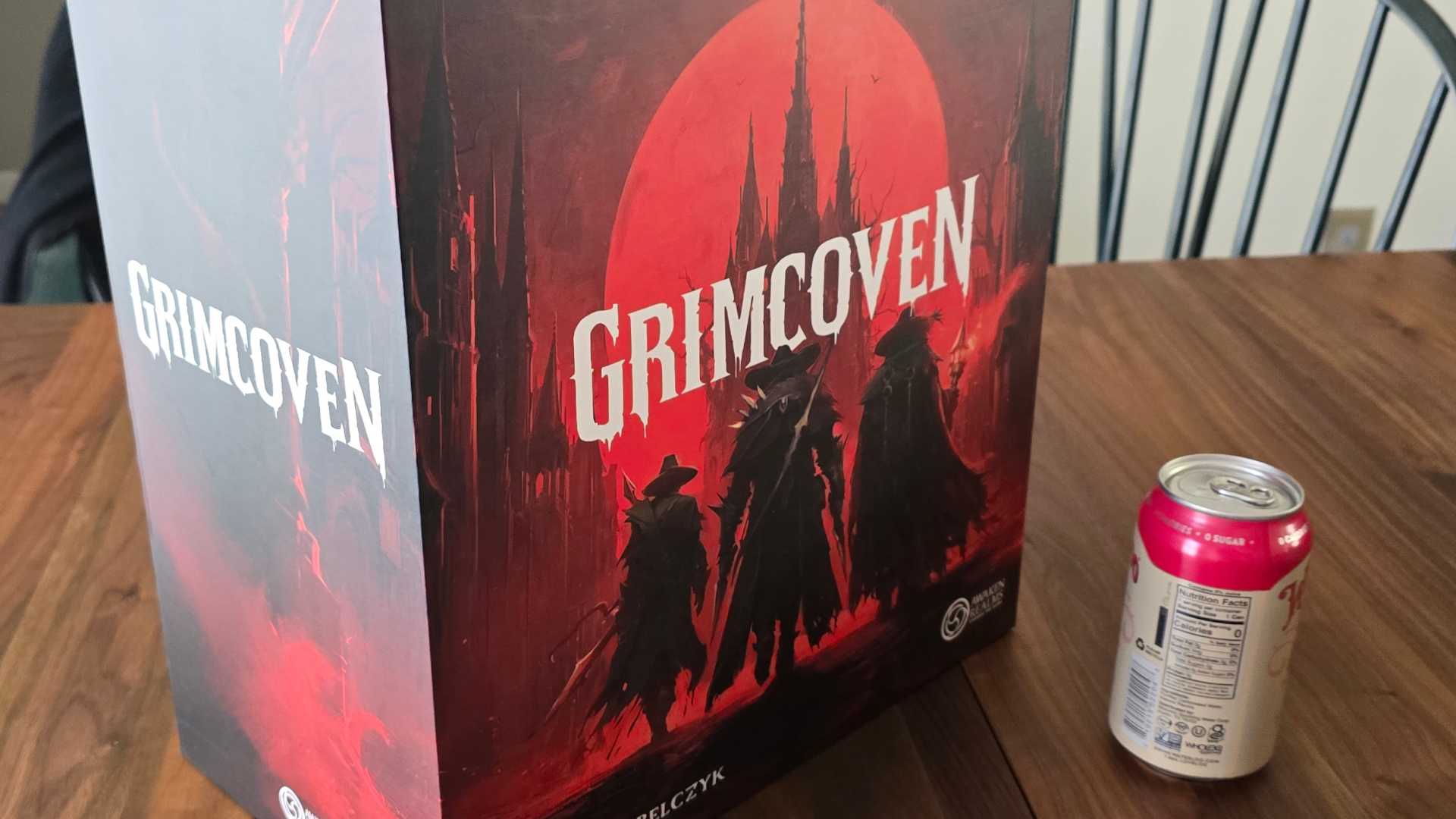X-Men: Days Of Future Past: Bryan Singer's Uncut Guide
X-Men: Days Of Future Past deconstructed...
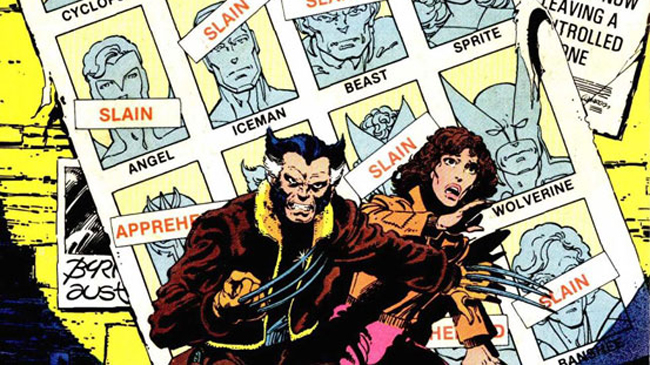
On the comic-book DOFP storyline
In the new issue of Total Film (The Future 100 - your ULTIMATE MOVIE PREVIEW out now) , we have a host of amazing X-Men: Days of Future Past exclusives.
As a special online treat, here's an extended, uncut interview with the X-Men movies' Godfather, and director of DOFP, Bryan Singer...
I read it many, many years ago, when I was first learning about X-Men. I was educating myself on X-Men, so I watched all 70 episodes of the animated series. I read all the character biographies and character histories. And then I chose certain stories to read from the decades of material, and that was one of them.
The reason it stands out is because it paints the world of the future as a world of defeat, and it asks the question, ‘How do you find redemption in a world of defeat?’
The image on the cover [Uncanny X-Men issue 141] of the dead – the missing mutants, the wanted mutants…. Our favourite characters, and suddenly you turn the page and see their graves. It immediately makes you go, ‘How did this happen?’
There’s also the notion of time travel, which is something that’s been in parts of the X-Men universe, but also enabled me to bring the cast together. I’ve never made a time travel film but I’m very fond of them – in anyone ever does a movie about time travel, I immediately go see it!
[Uncanny X-Men writer] Chris Claremont actually has a cameo in the picture… at the moment. We’ll see. You never know in editing, so I don’t want to promise this, but at the moment Chris is in the cut.
I’ve always spoken to him over the years. He wrote the novelisation of X2. He and [fellow X-Men writer Len Wein, are a really great source of inspiration and discussion about character. They understood I’m taking their story and altering it and adapting it for the screen and changing certain things. And they’re completely cool with that. They’re very adaptable guys. And good guys.
For more from X-Men, pick up the brand new issue of Total Film , which is out now , and includes an exclusive look at the mega-mutant movie as part of The Future 100 - your ULTIMATE MOVIE PRVEVIEW to everything that matters in movies. AND you get four amazing posters too!
Buy Total Film magazine issue 218
Never miss an issue by subscribing to Total Film magazine now!
Get the Total Film interactive iPad edition for just £1.99!
Android users: Get Total Film magazine from Google Play!
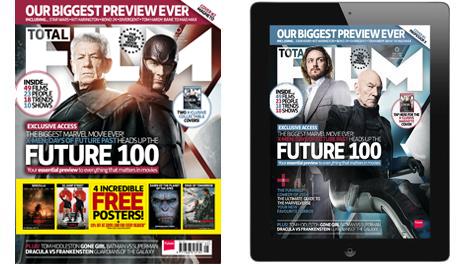
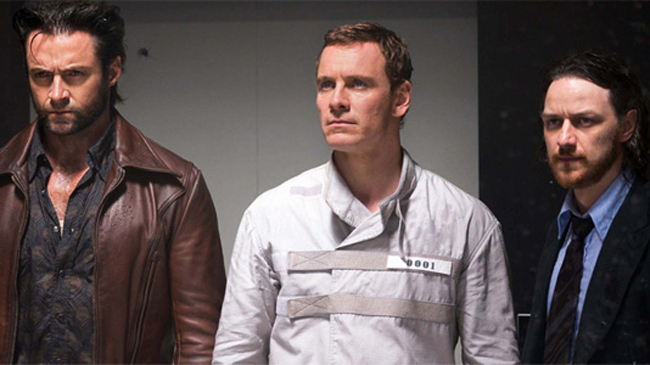
On making DOFP make sense
I had to figure out a system by which things could occur in two different times that would have a logic to it. So I created a conceit based loosely on quantum physics. The details of that, without getting into too much gobbledegook, deal with the notion that until an event is observed, it hasn’t fully happened yet.
So when history can go either way – when it’s not set yet, not ‘observed’ – it’s called a ‘superposition’. And then when the observer opens their eyes, that collapses the ‘super position’, which is kind of what’s happening here with the Wolverine character.
So the Wolverine character’s consciousness journeys back in time, and while he’s back there the past and future can co-exist until that moment ends. And then the future takes hold.
Is Kitty’s arc very different from the comic-book version [in the comic, she’s the one who travels back rather than Wolverine]. Well, yes and no. She has the power to ‘push’ consciousness and move someone. At the beginning of the film, she’s using it as an escape mechanism. She uses it to warn their group, the refugees, that they’re under attack. But then the challenge becomes: can they go deeper into the past?
Wolverine has, you know, a unique ability that makes him able to do that. So her goal is to keep him there. Because the moment he returns, whatever he’s done, for better or worse, takes hold.
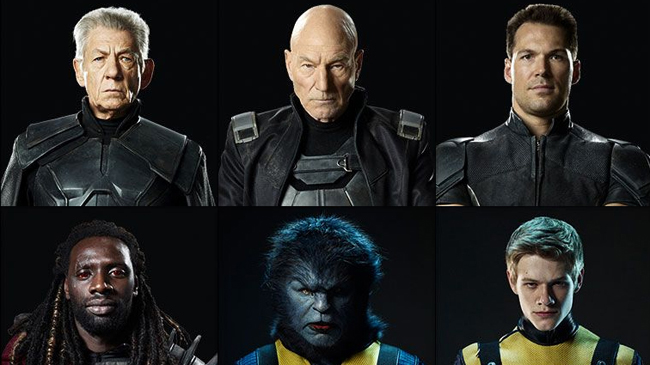
On figuring out the character line-up
I wanted a full cast, but I didn’t want it to feel forced. We wanted to make it feel organic, not take a ‘kitchen sink’ approach but bring together characters with interesting powers. There was the goal of bringing together the worlds of the original X-Men films and First Class, and then there were characters I really wanted to see [on screen]. Like Blink, who’s a really fun character with a great power. She’s sort of the Nightcrawler of this movie.
Quicksilver is also a really fun character. I guess he’s what would be considered the ’70s version of an emo outcast!
Does the clash of personalities generate a lot of humour? Yeah. I think you always get that when you bring an ensemble of these unlikely characters together – especially when you’ve got [on the one hand] easily irritated characters like Wolverine and then hyper-nerdy ones like Hank McCoy.
The movie has a lot of humour at the beginning. It’s quite light and fun. Then as the stakes grow, it gets darker and darker. Darker and darker.
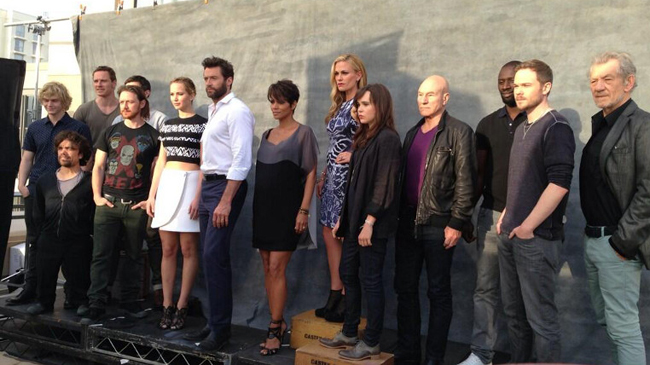
On handling a huge ensemble
Obviously with the older X-Men actors there was already great familiarity. And I’d made Jack The Giant Slayer with Nick Hoult, and knew Jennifer Lawrence through him, so I felt comfortable with them.
But the two actors I was most nervous about directing were Michael Fassbender and James McAvoy. You know, I’ve worked with Tom Cruise, I’ve worked with lots of different people – on Valkyrie I think I worked with half the National Theatre! But still, there was something about [Fassbender and McAvoy]… they’d already played those characters for another director [X-Men: First Class’ Matthew Vaughn]. Even though I produced that movie, it was different.
But then it turned out to be awesome and fun and funny. They take the work really seriously, but they don’t take themselves seriously. In between takes they were partying it up, and they dropped into the characters so seamlessly. And they were willing to try anything. They’re both really terrific in this movie.
The biggest challenge on this movie was cast availability. Just because of people’s schedules. I’ll give you an example. My first assistant director is Josh McLaglen, who did Avatar, Titanic… he’s done a lot of big movies. He has never had to board and schedule a movie with more than three actor restrictions. On DOFP he had seven.
Hugh Jackman had the press tour for The Wolverine right smack into production. We lost him for two weeks. Trying to shoot a movie of this complexity and this kind of storyline in such a disarray of order, accommodating actor availabilities, was nothing I’d ever experienced.
But the actors were so fun and so cool and chipper, they made it work a lot better. But we did pull some 18-hour days just to get things finished and out.
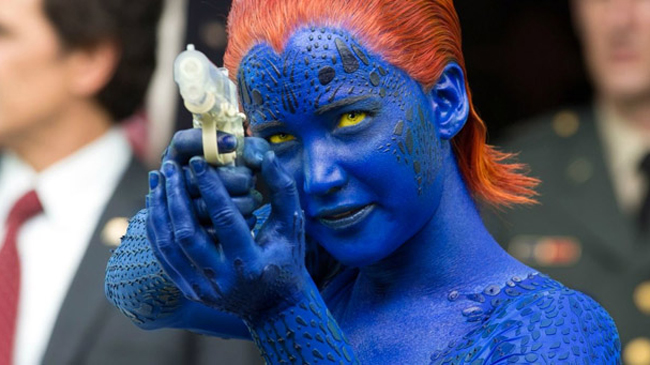
On directing Jennifer Lawrence
She’s very fun, very cool. But what was really interesting was seeing how meticulous she is when she’s shooting the fight scenes, how very focused she gets. She’d always go back to the monitors, checking her positions, checking what she’d did, not just doing what she was told but actually being very meticulous about it.
She speaks a number of languages in the movie, too. She does a scene completely in Vietnamese, so she made sure she spoke the language. A scene in French as well!
The Mystique make-up process was a lot easier for her this time. Yes. We developed a mixture of appliances and basically got a six-hour process down to three hours. We’ve come a long way since Rebecca [Romijn] on the first X-Men, where it would take nine hours – she’d show up a 1am and go to sleep in the make-up chair.
We can do things with digital repair now. Actors don’t have to wear terrible contact lenses that limit abilities to move and fight.
Now we can create something much more three-dimensional and interesting inside Mystique’s eyes. I was looking at some Mystique shots yesterday, and for the first time, for me, her eyes look really cool – real, and yet mutant.
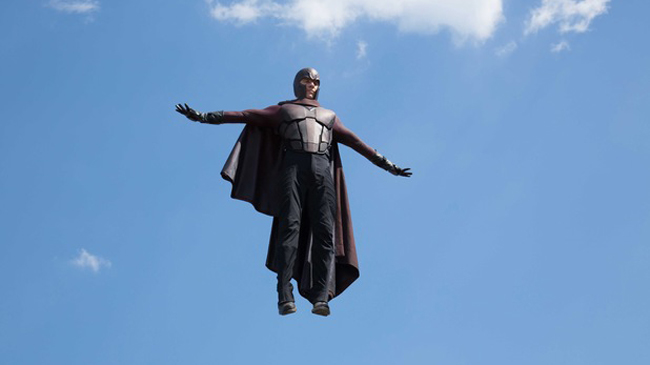
On how the First Class characters fit into DOFP
When we catch up with [Michael Fassbender’s] Magneto we don’t know what he’s up to. He’s isolated and somewhat embittered. We have hope for him that he’ll choose the right path. And unfortunately that happen. He becomes a terrible fly in the ointment of the mission.
[James McAvoy’s ] Professor X is in a very bad way. He’s a mess. It’s a very different, radical take on the character. At the end of First Class he’s still a preppy guy who thinks he might want to turn his mansion into a school, And then what occurs over the next decade, everything goes terribly wrong. Then there’s the loss of Raven [aka Mystique] from his life, the disappointment of that. His mishandling of their relationship. That’s a key thing.
Raven herself is more militant in this movie. She’s discovered things and she’s on a very singular mission of vengeance. But her very simple mission of vengeance is unfortunately one of those rocks that plunges into the river of time that creates the most devastating of ripples. So with her it’s about whether she’s going to become the assassin character we see in the first X-Men movies, or whether things can go another way.
Ultimately, it’s a story of character redemption told on a very massive scale.
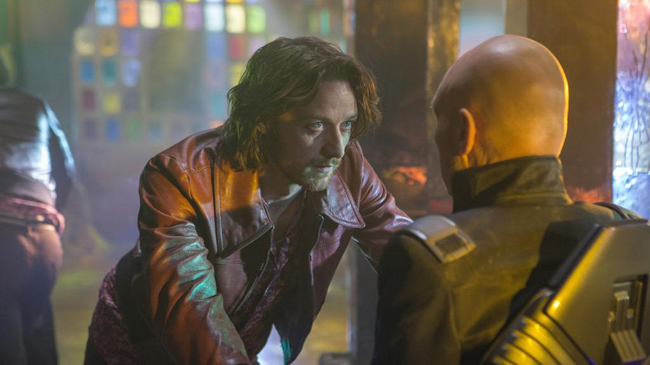
On action, character and balancing the two
Days Of Future Past is a very big movie but – in the X-Men spirit – it’s character-driven, and emotionally driven. It’s not a destruction fest or anything like that. There’s no cities being destroyed. Although there obviously is action in it. There’s no lack of action or scope. We’re just not egregious with it.
What sort of action do we have? Well, it’s a mix-up. There’s lots of different powers. And new powers. So you see how they work in a team and how one power affects another. There’s some fun action in there. Some heartfelt action. Some tragedy. But it’s all based on the characters and their dilemmas and their situations.
In test screening the film, we’ve noticed that women have responded well. More so than I’ve ever seen in an X-Men film that I’ve been involved with. I think it’s down to the emotional core of James McAvoy’s character’s journey. I think it has to do with his relationship with Raven.
I’m not saying women are more emotional than men, but a female audience might invest in this idea of, if you knew then what you knew now, would you change history? What would you do with your regrets? But I don’t know, I’m just guessing. That’s why we have these screenings, because it’s always good to watch a movie with people. Because after a while you don’t know what you’re looking at anymore!
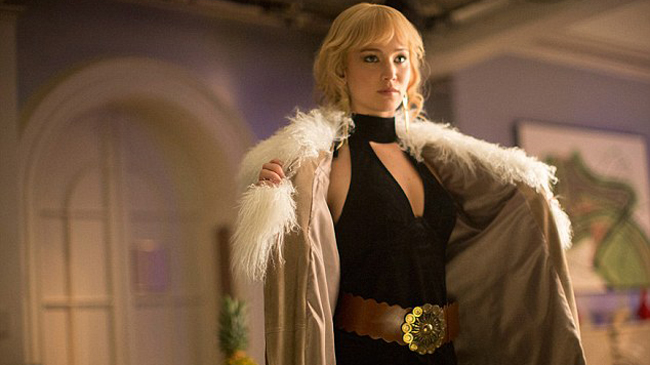
On putting his cast in 70s fashions
I think a lot of 70s clothing is somewhat hideous, but the actors wear it well. Wolverine is very well suited to the period; suddenly the hair and the chops make sense. James McAvoy with long hair – he’s got this whole Born On The Fourth Of July thing going – makes sense. And then you have Fassbender with the fedora and the lapels… he wears them really well.
There’s one scene where some of the characters have to pose as tourists for a heist. You have Nick Hoult in this ridiculous hat. There was a moment where I was like, ‘Oh, did I push this too far?’ Maybe a little bit. But it’s cute. It’s a fun scene.
And for the record, Peter Dinklage’s [as industrialist/Sentinels creator Boliver Trask] hair is real. Everybody thinks it’s a wig because it’s so outrageously ’70s. But he just has very thick hair. So that should be known, because it’s been driving him crazy!
Trask isn’t a moustache-twirling villain (though he does have quite a moustache). He’s maybe similar to Senator Kelly, but with less vitriol. He’s very clinical about the future. He sees mutants as a pathway to peace, in a dark, strange way. A character like Stryker in X2 has a very deep hatred for mutants because his son was a mutant and compelled Stryker’s wife to commit suicide using mutant powers. So he wants revenge. Trask has a more clinical, scientific outlook. It’s not personal to him.
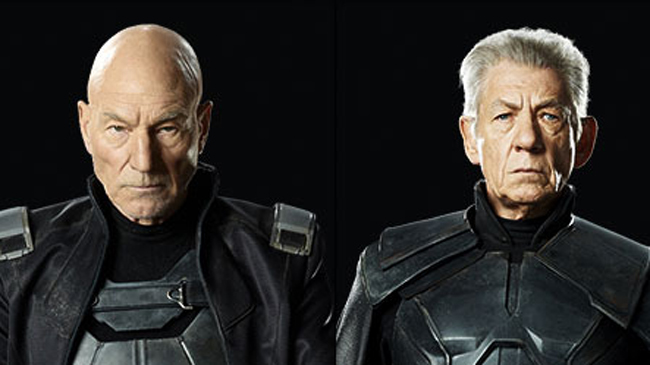
On being reunited with the old gang
Patrick Stewart and Ian McKellen didn’t really know each other before the first X-Men movie, but now they’ve become like this brand. They’re like a married couple! They’re hilarious together. Watching their relationship build from movie to movie has been really nice, and seeing them do theatre shows together… So I feel excited about having brought them together on the first X-Men movies. I wasn’t there for the third movie, but they had each other’s backs. And I know Patrick was excited about coming back for this one: ‘Finally I have an X-Men uniform!’
What’s nice about Hugh Jackman is, here’s a guy who’s become a big star and has all kinds of accolades, proven himself in so many ways, but he hasn’t changed at all. He’s still incredibly lovely and hard-working and fully appreciates it all.
At one point when we were up there with the full DOFP cast at last year’s Comic-Con, in front of 7,000 people, Hugh just leaned over to me and said, ‘It is so great to be here.’ I looked him and was very emotional. I said, ‘Yeah, for me too.’
When I originally cast him as Wolverine, it was one of the rare moments where I offered an actor a role personally. Usually I call the agent and make an offer. On X-Men, we’d already been shooting for a month. Hugh’d just finished doing Oklahoma on stage. He screen tested and I walked up to him and said ‘Do you want to play Wolverine?’ He said, ‘Yeah. Whoa. Ok!’ And here we are.
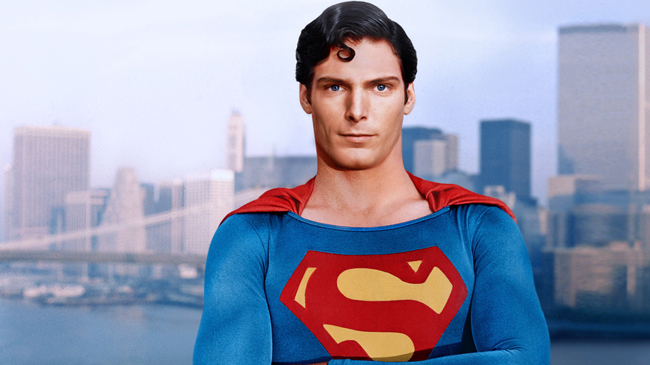
On his comic-book movie inspiration
The biggest inspiration I got before I made the first X-Men was Richard Donner. You know, initially Superman: The Movie [1978] was lined up to be the campest piece of shit in the world. Then Richard Donner came in and said, ‘No, this is a beloved character.’
And his Superman takes itself quite seriously, especially in the first half. It’s got this pathos and beauty to it. I haven’t watched the movie since I made Superman Returns – when you’ve lived and breathed something like that for a while, you’d rather see something new. But I will always love Superman: The Movie. I think it’s a beautiful story – even something as absurd as spinning around the Earth to turn time backwards!
My interest in comic-book movies stems from my love of Superman as a character. I think if I made a fault in Superman Returns, it was making it too much of a love affair. I’m probably better suited to the X-Men universe because it’s not something I grew up with. I’ve talked about this with J.J. Abrams; he was not a big Star Trek fan, so when he made his movie, he had the objectivity to create something fresh and new.
When you grow up loving something to death you may not have that objectivity. When I did the first X-Men, I said ‘Storm? That’s her name? Sabretooth? Are you serious?’ So I wrote in a scene where Wolverine just makes fun of all their names. Hugh wrote that line he says to Patrick, ‘What do they call you? Wheels?’ And I wrote in a yellow spandex joke, because the stuff was so alien to me. And yet at the end of the movie I wanted Wolverine to love this club of superheroes, and to be part of that.
It is extraordinary to have made that movie, then see this huge resurgence in comic-book movies. It used to be ‘Oh, you’re a comic-book movie? No one’s done that in a while. That’ll be original.’ Now it’s like, you couldn’t be less original.
Have I seen Man Of Steel? Yeah. I liked it very much. I was so blown away by the world-building. The scope they targeted. And the way they re-told that story in a fresh and original way. I very often watch the trailer for it. In fact, I hired the guy who cut the trailer to cut my DOFP Comic-Con reel, because of the emotions it taps into.
Weekly digests, tales from the communities you love, and more
You are now subscribed
Your newsletter sign-up was successful
Want to add more newsletters?

Every Friday
GamesRadar+
Your weekly update on everything you could ever want to know about the games you already love, games we know you're going to love in the near future, and tales from the communities that surround them.

Every Thursday
GTA 6 O'clock
Our special GTA 6 newsletter, with breaking news, insider info, and rumor analysis from the award-winning GTA 6 O'clock experts.

Every Friday
Knowledge
From the creators of Edge: A weekly videogame industry newsletter with analysis from expert writers, guidance from professionals, and insight into what's on the horizon.

Every Thursday
The Setup
Hardware nerds unite, sign up to our free tech newsletter for a weekly digest of the hottest new tech, the latest gadgets on the test bench, and much more.

Every Wednesday
Switch 2 Spotlight
Sign up to our new Switch 2 newsletter, where we bring you the latest talking points on Nintendo's new console each week, bring you up to date on the news, and recommend what games to play.

Every Saturday
The Watchlist
Subscribe for a weekly digest of the movie and TV news that matters, direct to your inbox. From first-look trailers, interviews, reviews and explainers, we've got you covered.

Once a month
SFX
Get sneak previews, exclusive competitions and details of special events each month!
